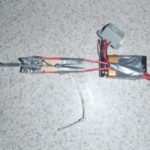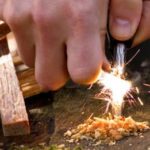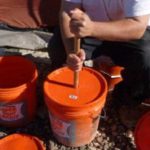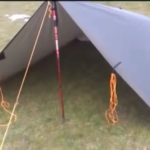Another Earthquake, Another Reason to Prepare for the Worst
A large Earthquake struck Southern Japan on April 15th, 2016 in the middle of the night, causing widespread damage and trapping scores of people. While deaths were minimal compared to the scale of the disaster, the devastation blocked roads, made access to medical services difficult and hampered the efforts of rescue workers.
Japan is notorious for their earthquake preparedness efforts, but they still suffer major casualties after large quakes. However, it is widely-accepted that death, destruction and ensuing chaos after a quake would be much more severe in the absence of these efforts. This is why this quake should serve as a reminder that no matter how prepared communities are, our best laid plans may be rendered useless.
Survival Kits

Earthquake survival kits are not that different from other ones in the sense that you should have water, food, first aid kit and appropriate clothing. However, there are two items that should always be included that are often overlooked.
The first is a whistle. You don’t need one that is fancy or expensive, but it needs to make noise. Rescuers find it very difficult to hear cries for help or the clanging of objects being hit by victims to get attention. Screaming for help also takes a lot of energy, places strain on the body and can lead to vocal cord damage. We can’t scream forever, and it gets harder with each attempt. However, it is very easy to blow into a whistle, and it doesn’t take a lot of force to create a high-pitched sound that is irritating to the ear. Consequently, they get noticed easier, and their piercing sound can be distinguished from other noises.
The second is a flashlight. A good flashlight can be helpful for victims who are trapped and need to assess their situation. It’s dark in buried rubble, and it can be very difficult to see even in broad daylight. Flashlights can also be used to signal for help by shining the light through various cracks and crevices in the rubble as well. Flashlights are also useful when a whistle is broken or not available as an alternative way of signaling for help.
Make sure that you have these two items on hand at all times in addition to standard items that go into survival kits or bug-in-bags.
It is also important that you consider the possibility that mobility may be limited if you are trapped. This can be due to being in a confined space, suffering from injuries or not able to reach deep into your survival kit. Keep essential items near the top or within easy access, especially whistles and water.
Remaining Calm
If you are trapped, remember that it may take days for rescuers to find victims. Expect the worst so that you won’t panic. Panicking wastes energy, places significant stress on the body and is completely counterproductive in a crisis. Yes, you may be trapped in rubble that shifts, creaks and cracks. Yes, you may be injured. Yes, you may be claustrophobic. If you expect these things to happen and work out a mental plan beforehand, chances are that you will be in a much better position to control your emotions and think clearly if you become trapped.
The most important thing that you can do is to conserve energy. Take deep and slow breaths. Focus on the moment as opposed to thinking of the worst. The calmer you remain will minimize the impact of injuries, help you to conserve water and keep you thinking clearly.
Unfortunately, there is little that any of us can do if we get trapped. However, having a plan in place for coping with the inability to act, knowing that we need to be patient and remaining calm can help to keep us alive.
Finally, make sure that your situational awareness is up to speed before a quake strikes. Know escape routes, keep supplies near your bed or within reach in your room. Know when it’s a good time to exit a building or when to shelter in place. You will only have seconds to react to a quake, and it’s essential that you make the right choices without delay or too much thought.
Following these general guidelines can make all the difference in the world if you suffer a direct hit from a powerful earthquake. Keep in mind that even the most prepared areas will suffer major damage and rescue efforts will be hampered. Medical facilities and emergency services will be overwhelmed and it may take a long time to get help. Be ready for this, expect the worst, and plan accordingly with respect to how to cope in order to stay alive.















